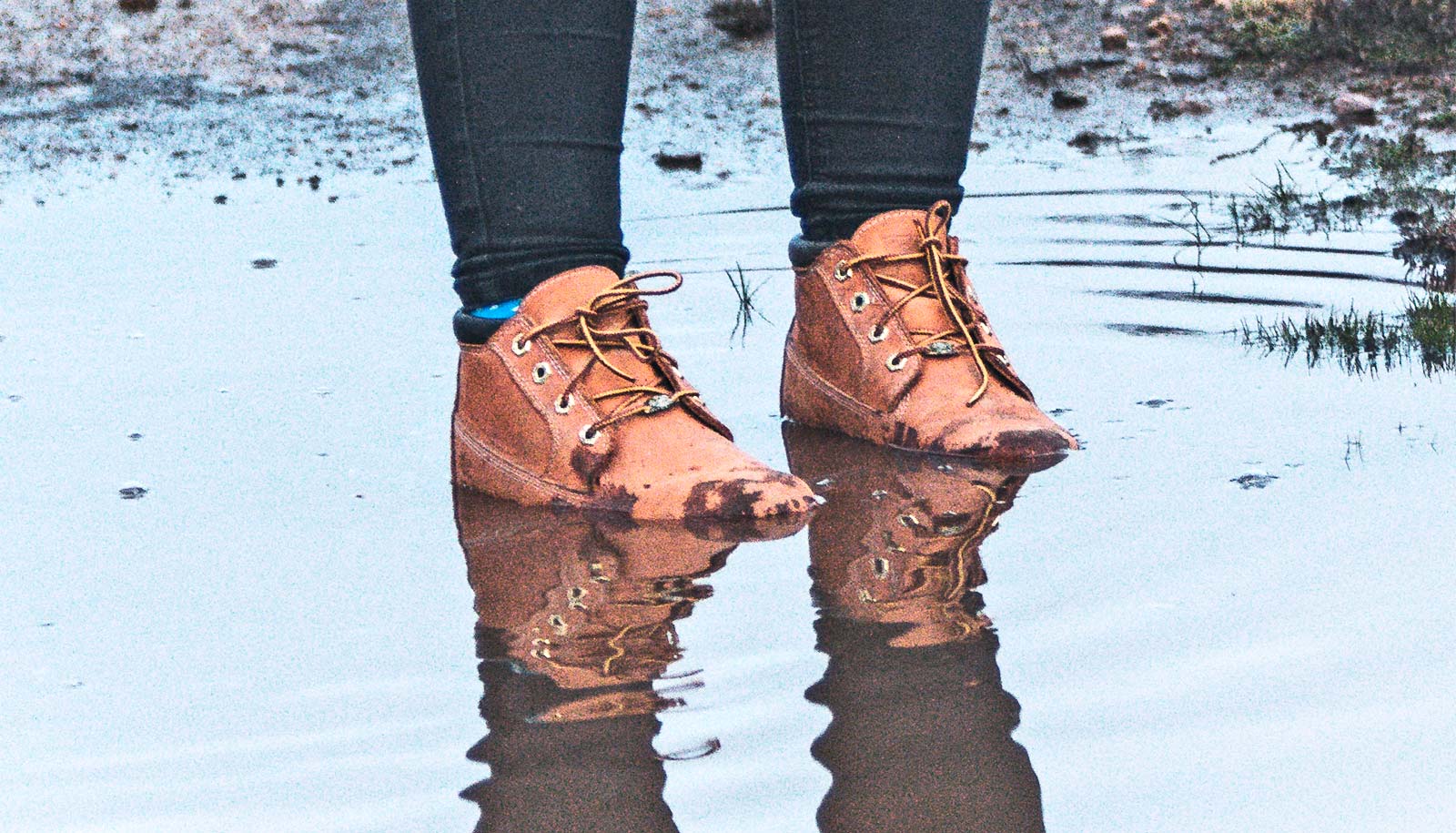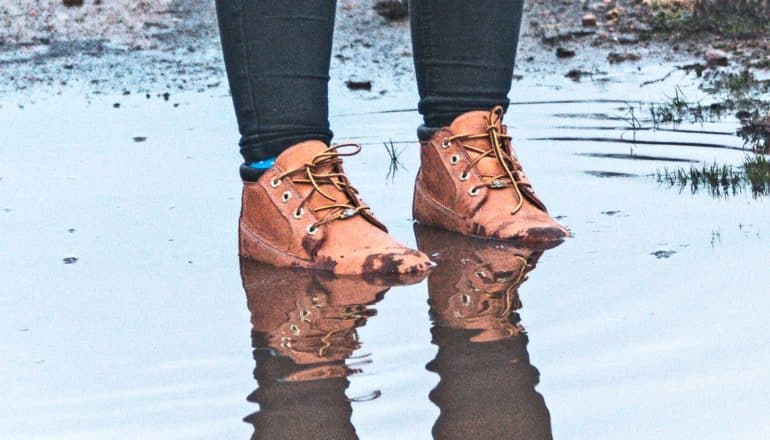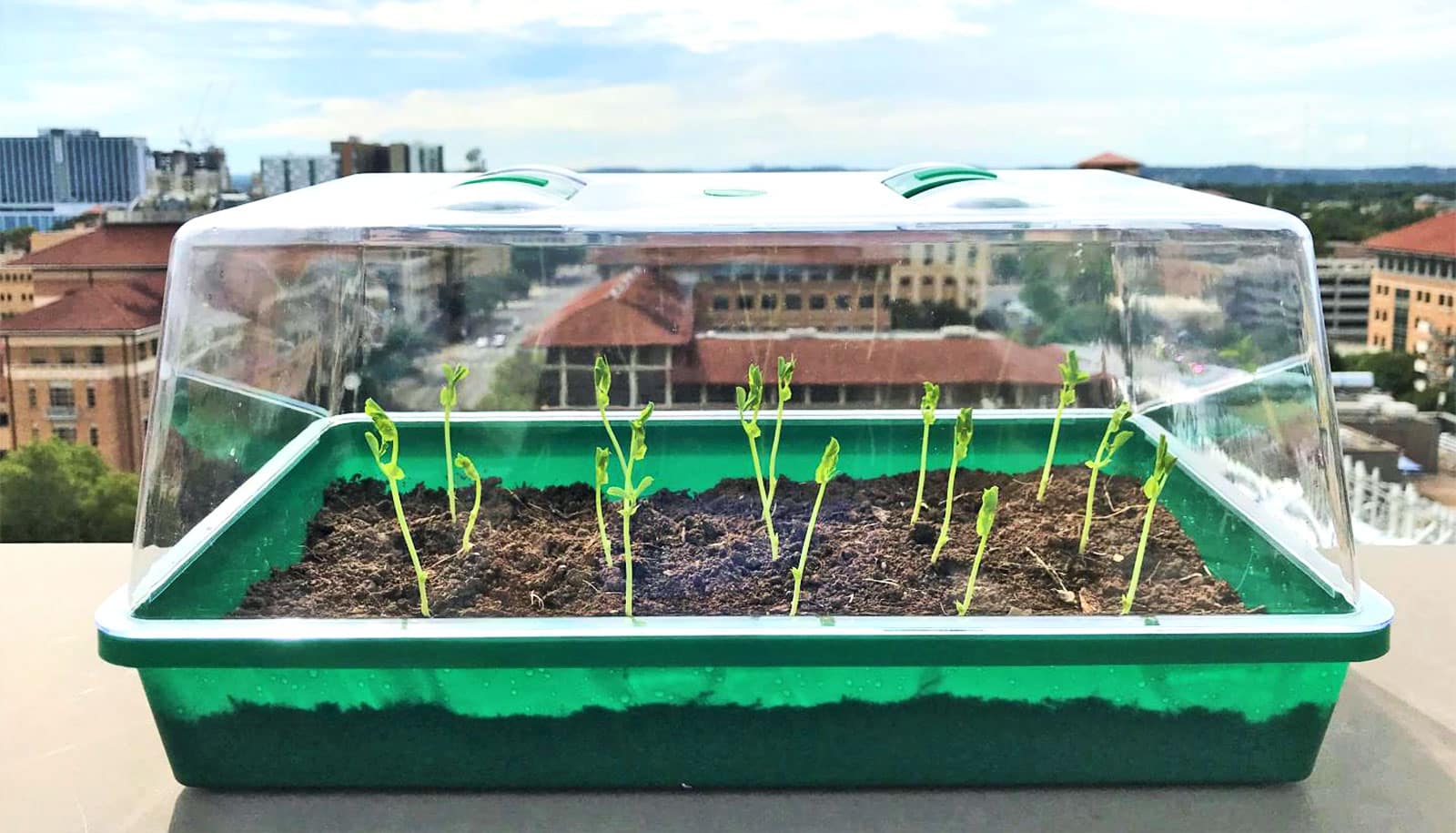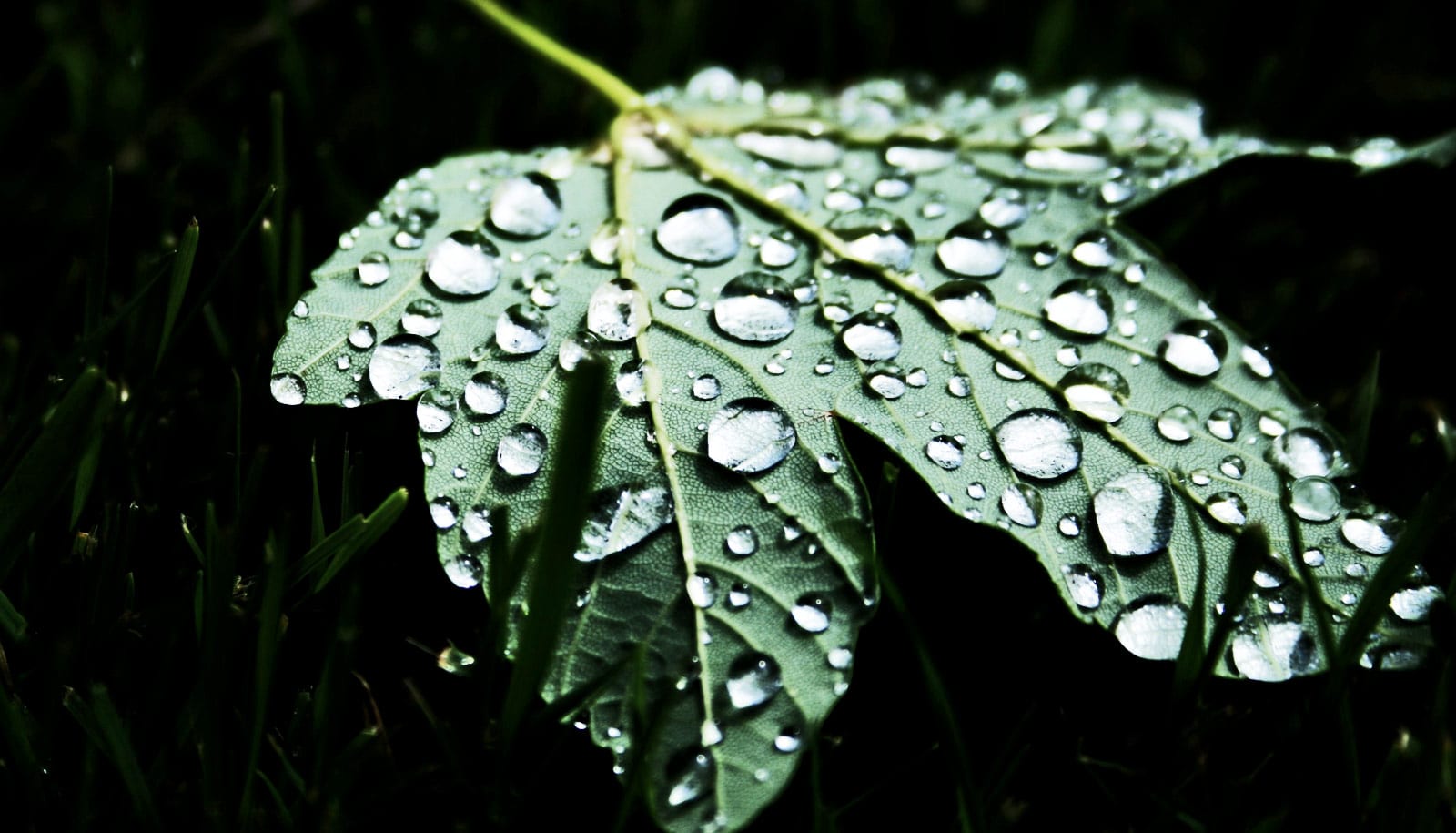
(Credit: Jake Oates/Unsplash )
Climate change could make it harder for soil to soak up water
Climate change may make it harder for the soil to absorb water. That could have serious implications for food production and security, researchers warn.

Climate change may reduce the ability of soil to absorb water in many parts of the world, researchers warn.
That could have serious implications for groundwater supplies, food production and security, storm water runoff, biodiversity, and ecosystems.
“Since rainfall patterns and other environmental conditions are shifting globally as a result of climate change, our results suggest that how water interacts with soil could change appreciably in many parts of the world, and do so fairly rapidly,” says Daniel Giménez, a soil scientist and professor in the environmental sciences department at Rutgers University-New Brunswick and coauthor of the paper, published in Science Advances.
“We propose that the direction, magnitude, and rate of the changes should be measured and incorporated into predictions of ecosystem responses to climate change.”
Water in soil is crucial for storing carbon, and changes could influence the level of carbon dioxide in the air in an unpredictable way, Giménez says. Carbon dioxide is one of the key greenhouse gases linked to climate change.
Giménez cowrote a study in Nature last year showing that regional increases in precipitation due to climate change may lead to less water infiltration, more runoff and erosion, and greater risk of flash flooding.
Whether rainfall will infiltrate or run off of soil determines how much water will be available for plants or will evaporate into the air. Studies have shown that water infiltration to soil can change over one to two decades with increased rainfall, and researchers expect climate change to boost rainfall in many areas of the world.
During a 25-year experiment in Kansas that involved irrigation of prairie soil with sprinklers, scientists found that a 35% increase in rainfall led to a 21% to 33% reduction in water infiltration rates in soil and only a small increase in water retention.
The biggest changes linked to shifts in relatively large pores, or spaces, in the soil. Large pores capture water that plants and microorganisms can use, and that contributes to enhanced biological activity and nutrient cycling in soil and decreases soil losses through erosion.
With increased rainfall, plant communities had thicker roots that could clog larger pores and there were less intense cycles of soil expansion that added water or contraction that removed water.
Next, researchers will investigate the mechanisms driving the observed changes, in order to extrapolate the findings to other regions of the world and incorporate them into predictions of how ecosystems will respond to climate change.
They also say they want to study a wider array of environmental factors and soil types, and identify other changes that may result from shifts in climate.
Joshua S. Caplan, a former Rutgers postdoctoral associate now at Temple University is the study’s lead author. Additional researchers from the University of California, Riverside; the University of Kansas; Kansas State University; and Colorado State University contributed to the study.
Source: Rutgers University
The post Climate change could make it harder for soil to soak up water appeared first on Futurity.
Share this article:
This article uses material from the Futurity article, and is licenced under a CC BY-SA 4.0 International License. Images, videos and audio are available under their respective licenses.
Related Articles:
New type of soil waters plants by itself
Nov. 3, 2020 • futurityDetails inside raindrops hint at future water sources
Feb. 11, 2019 • futurityLinks/images:
- https://doi.org/10.1126/sciadv.aau6635
- https://www.futurity.org/soil-minerals-carbon-1948892-2/
- https://doi.org/10.1038/s41586-018-0463-x
- https://www.futurity.org/floods-sensors-windshield-wipers-1960672/
- https://news.rutgers.edu/soils-could-be-affected-climate-change-impacting-water-and-food/20190909#.XXo4DX97mpq
- https://www.futurity.org/soil-climate-change-rain-2158302-2/
- https://www.futurity.org


